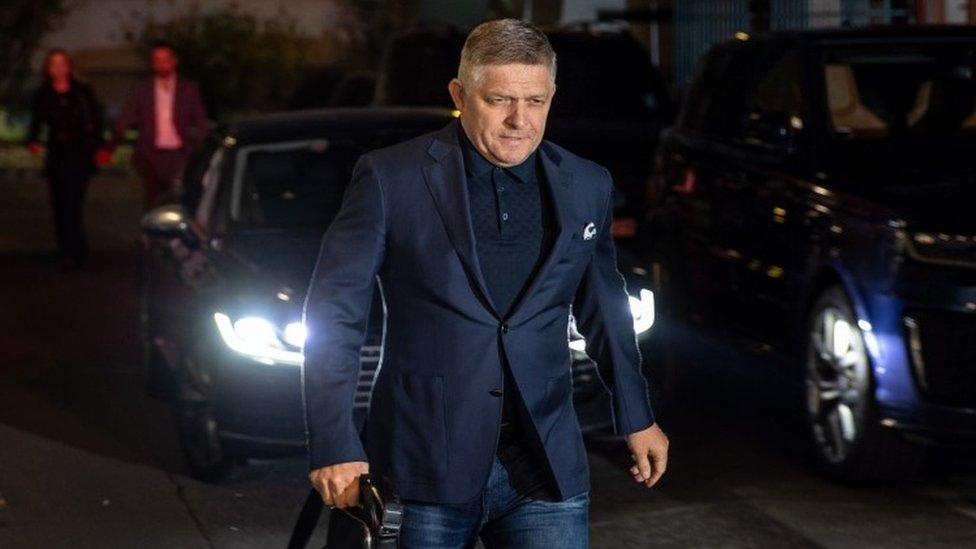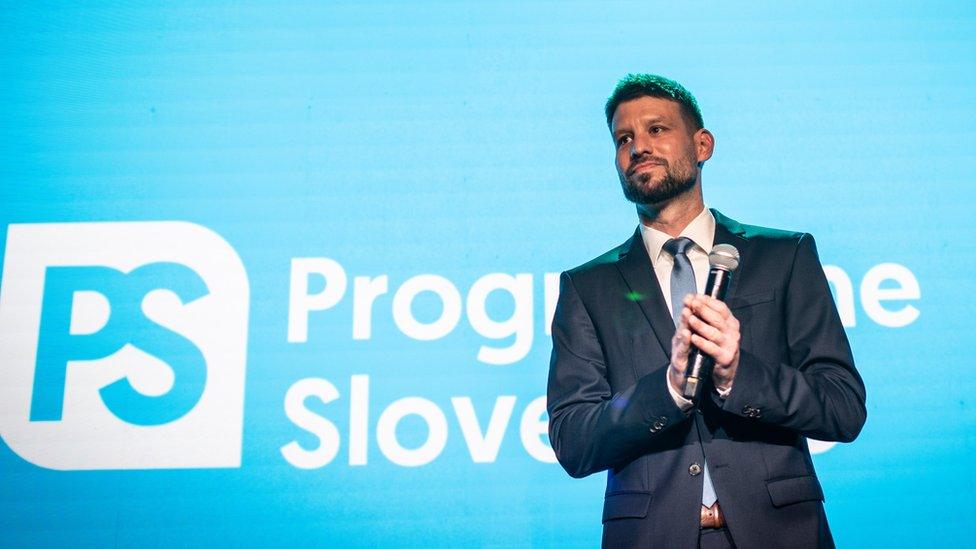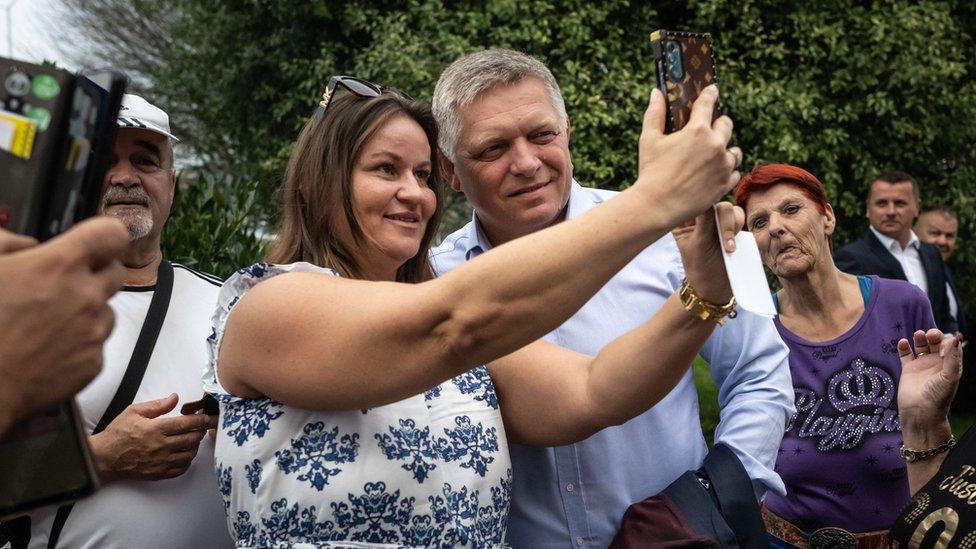Slovakia elections: Populist party wins vote but needs allies for coalition
- Published

Mr Fico has vowed to stop military aid to Ukraine
A populist pro-Moscow party led by former PM Robert Fico has won Slovakia's parliamentary elections, with almost all votes counted.
The Smer-SSD party had a clear lead with almost 24% of the vote despite exit polls suggesting victory by a liberal centrist party.
Left-wing Smer has pledged an immediate end to military support for Ukraine.
Mr Fico was forced to step down as PM following the murder of investigative journalist Jan Kuciak in 2018.
He will be expected to start coalition talks on forming the next government.
The liberal Progressive Slovakia party, which exit polls suggested had won the election, polled at about 17%.
The pro-European Hlas party, which could decide who forms the next government, came third with 15%.
The party's leftist leader Peter Pellegrini - who is a former colleague of Mr Fico - kept his options open on future coalitions.
"The distribution of seats confirms Hlas as a party without which any normally functioning government coalition cannot be put together," Mr Pellegrini said.
Mr Fico may cooperate with Hlas, which split away from Smer in 2020, as well as the nationalist Slovak National Party that won 5%.
There will be seven parties in the new parliament from libertarians to far-right, which could make the coalition-building process long and complicated.
Mr Fico brushes aside the label "pro-Russian politician", but this result will be celebrated in Moscow.
"If Smer enters government, we will not send a single round of ammunition to Ukraine," he recently told supporters.
The threat has led to concerns among European Union and Nato members, while gaining support on social media among Slovaks who traditionally have warm sentiments towards Moscow.
Slovakia has been a loyal and steadfast ally to Kyiv, supplying surface-to-air missiles and helicopters - and even donating its entire fleet of retired MiG-29 fighter jets.
Mr Fico was congratulated by Hungary's far-right Prime Minister Viktor Orban.
"Guess who's back!" he said, in a post in English, adding that it was "always good to work with a patriot".
Like his Hungarian supporter, Mr Fico - who has said the Ukraine war was started "by Ukrainian Nazis and fascists" - insists the only way to stop it is through peace talks.
His victory gives the impression of a very obvious crack in Nato and EU unity over Ukraine forming along the River Danube.

Progressive Slovakia Party leader Michal Simecka has not given up hope of forming a government
Slovakia's liberal President Zuzana Caputova has given a muted reaction to Mr Fico's victory.
Ms Caputova - who is taking legal action against Mr Fico after receiving death threats from his supporters - did not congratulate him or appear on camera. Instead she released a statement via her spokesman.
"The winner of the election bears the greatest responsibility for future developments because he or she has raised the greatest public expectations. It is now important that he fulfils them for the benefit of all of us, for the benefit of Slovakia," the statement read.
Slovakia's first female president will not seek re-election when her term expires next year, due to what she said was the hostility and personal attacks she and her family have endured in recent months.
Ms Caputova has blamed Mr Fico and Smer for inciting the hatred towards her by making unfounded claims she is an agent of Washington or US financier and philanthropist George Soros, a familiar trope of the far-right. They deny this.
Progressive Slovakia says it offers a vision of an "open, tolerant, cosmopolitan society" and has advocated following a liberal line within the European Union on issues such as green policies and LGBTQ+ rights.
Smer dismisses that vision as "liberal fascism", campaigning on stability, order and social security instead. Mr Fico has also said he is concerned about the rise in the number of migrants going to western Europe through Slovakia.
- Published30 September 2023
